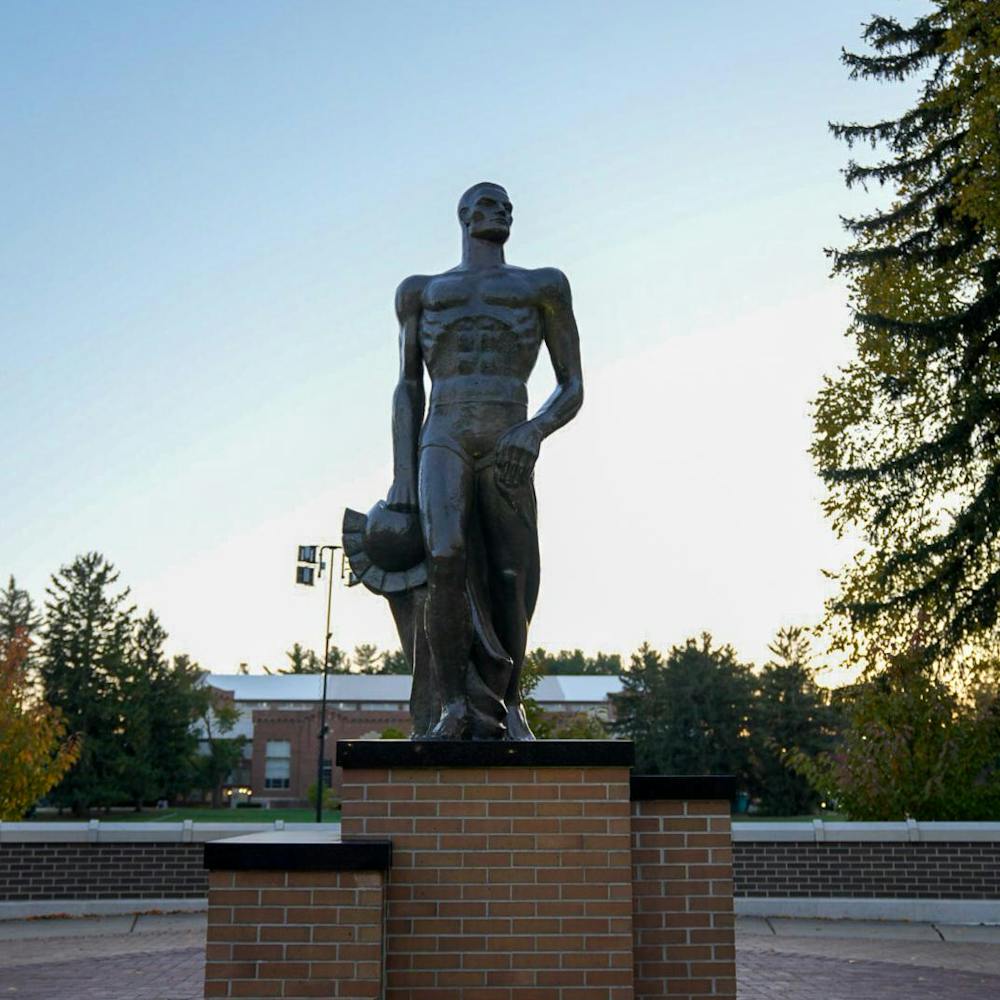Editor’s Note: Views expressed in guest columns and letters to the editor reflect the views of the author, not the views of The State News.
The first official job I ever had was working for minimum wage at a Culver’s restaurant when I was 15 years old. And while I’ve had a number of jobs since, I can safely say being an employee within the service industry was the worst job I’ve ever had. Flipping burgers for the ungrateful masses, watching them scarf down double cheeseburgers like it had been days instead of hours between visits to the trough.
But I, and most of you out there reading this, am fortunate. Although we’ve all had our minimum-wage slogs — whether spent cleaning bathrooms, stocking shelves or collecting tolls — at the end of the day, it’s temporary. Sure, we bond with co-workers and gripe collectively about the working conditions, but at the end of the summer, we’ll all return to school to toil away within an entirely different system. And those we left behind still will be there, mopping floors and dealing with unruly customers.
But after all the exposition and reminiscing, we are left with the topic at hand: minimum wage laws. A great many people in this country say our system is broken for ensuring employees are given a fair wage for their time. They say people cannot be expected to live on just $7.25 an hour (Michiganians are fortunate to make $.15 an hour more, though there has yet to be any celebratory parades).
So a few weeks back, McDonald’s decided to help all those in loan-shark-infested waters by offering a web budgeting service. By making responsible choices with their wages, McDonald’s pitched that a full-time employee could make it month to month with enough left over to start a rainy day fund.
There were, of course, a few problems. First, the budget assumed an employee was holding down a second job, totaling 75 hours a week in work and leaving them with just more than $2,000 a month to live on.
Other issues included no money allotted for heating or gasoline, and the expectation of getting health insurance for $20 a month (which, in the private insurance model, would never happen, and even with businesses offering packages, $20 isn’t going to get much besides a Band-Aid and a bottle of painkillers).
This led labor leaders and public policies pundits to decry the site and to pontificate once again on the point that the minimum wage in this country is not a livable wage. And you know what? They are absolutely right.
So they chanted, “We want $10 an hour,” or, “No, we need $15 an hour.”
Now again, there are some problems. There is no way, politically, you would ever see a federally mandated minimum wage even coming close to double digits, especially in our present economic climate. Heck, there are conservatives and “titans of industry” out there who say we shouldn’t have a minimum wage at all. Because after all, when looking for inspiration to fix labor concerns, it’s best to look to the third-world slave labor markets.
Secondly, almost no businesses would support this kind of measure. Sure, while McDonald’s corporate offices could lose a few million in the profits section to pay this increase, small businesses could never shoulder something like this.
So all that’s been done in this article is tearing down the existing system, but what exactly can be done? The answer is simple: help create more of us.
By us, I’m referring to college students. After all, we are not the ones stuck in these positions. We take our licks, learn our life lessons and, once we’ve got that diploma, we’re off to work. What needs to happen in this country is there needs to be a better system of opportunity creation for those individuals not content with having the same spending power as those working in the 1970s.
The reason there are more than 10 million working poor families in this country is because of a breakdown in education systems. Underfunded public schools deal with poverty, unqualified teachers and an administration more focused on test scores than insuring all students are given the chance to succeed.
It isn’t that the person taking your order at the drive-thru isn’t motivated to succeed; it is that he or she feels there is little hope to escape his or her present circumstance.
Instead of accepting that some students are going to get left behind, state governments should expand education funding to make sure students never feel hopeless. And it doesn’t have to be college; whether it’s professional training or apprenticeships, it’s essential young people not get caught in the whirlpool that is menial labor.
Being stuck on minimum wage is the disease, while government assistance programs are the medicine given after outbreak. They might prove effective in some cases, but as it is with medicine, it’s better to prevent the illness than to try to fix it after it already has taken hold.
So many young people today are disenfranchised. They don’t believe school is for them, and they are predetermined to slave away for the rest of their lives. But that one teacher, or that one class, can change that. So rather than looking over the situation and trying to put a big ol’ Band-Aid over everything, why don’t we look at what causes these wounds to fester in the first place and spend the time and the energy to make sure these problems don’t develop at all.
Think about it, would you spend the time cleaning up a customer’s overturned tray, or take the time to put out a caution wet floor sign and prevent the incident altogether?
Support student media!
Please consider donating to The State News and help fund the future of journalism.
R.J. Wolcott is a staff writer at The State News and a journalism senior. He can be reached at rj.wolcott@statenews.com.
Discussion
Share and discuss “It's not all about money regarding minimum wage debate” on social media.







